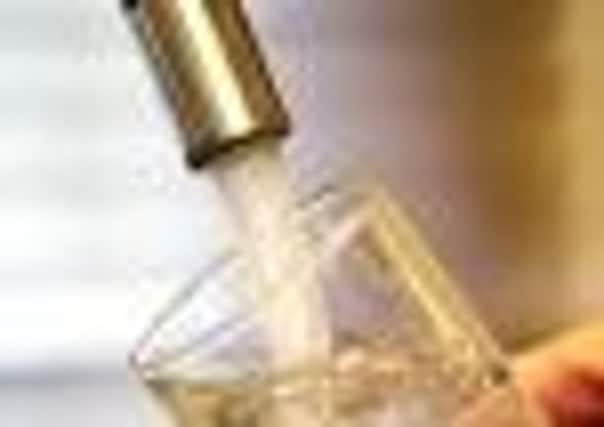Private water supplies ‘expose children to Third World risks’


Youngsters who drink from these sources suffer diarrhoeal disease to the same extent as children in developing countries. Scotland is the region in the UK with the most private supplies and 150,000 people obtain their water from sources other than the mains supply.
Professor Paul Hunter, of the University of East Anglia, said: “This is a serious concern. As well as children being more at risk, they also suffer the most from an episode of diarrhoea – with greater rates of hospitalisation and higher mortality rates.”
Advertisement
Hide AdAdvertisement
Hide AdProf Hunter recommends that parents ensure adequate, well-maintained treatment such as chlorination or filtration, or provide alternate sources such as drinking bottled water. He said: “My advice to them would be boil it or treat it, otherwise use some alternative source.”
John Cowden, of Health Protection Scotland, said: “If appropriately maintained and run, then private water supplies are fine.”
However, according to the Drinking Water Quality in Scotland 2010 Annual Report, many private supplies have disinfection systems which are incorrectly installed or operated, or are not adequately maintained.
A spokesperson for the Drinking Water Quality Regulator for Scotland said: “In 2010, there were 19,177 registered private water supplies in Scotland. While some of these supplies are well managed, the quality of water from many is of concern.
“To help improve the quality of these supplies, there is a non-means-tested grant scheme in Scotland. Owners and users of private water supplies are encouraged to make use of this grant and further information can be obtained from local authorities.”
Adults and older children are less susceptible to disease caused by bacteria in water, while those under ten can suffer five bouts of sickness per year.
The scientists said: “We found a particularly high incidence of diarrhoea in children under ten – a risk of illness similar to that reported in developing countries. You get people saying, ‘I have been drinking this for 40 years and it has never done me any harm’. But we have shown for the first time that the risk is mainly to young children whose immune systems have not had time to build up. In the past, researchers have tended to look at the general population.”
Mr Cowden said exposure to contaminated water to build up immunity was not a good idea: “You wouldn’t use a vaccine which made many people ill, and some fatally so.”
Advertisement
Hide AdAdvertisement
Hide AdThe study followed more than 600 consumers in Norfolk, Suffolk and Herefordshire for 12 weeks and found drinking from contaminated supplies increased the risk of infection, particularly among young children.
The researchers tested the water for the presence of bacteria and the consumers studied kept a diary of symptoms including diarrhoea, vomiting, stomach pains, nausea, headache and fever.
About one in 100 people in the UK – and one in ten in Europe – is served by private supplies such as wells and boreholes. And many more drink from them as visitors and while on holiday.